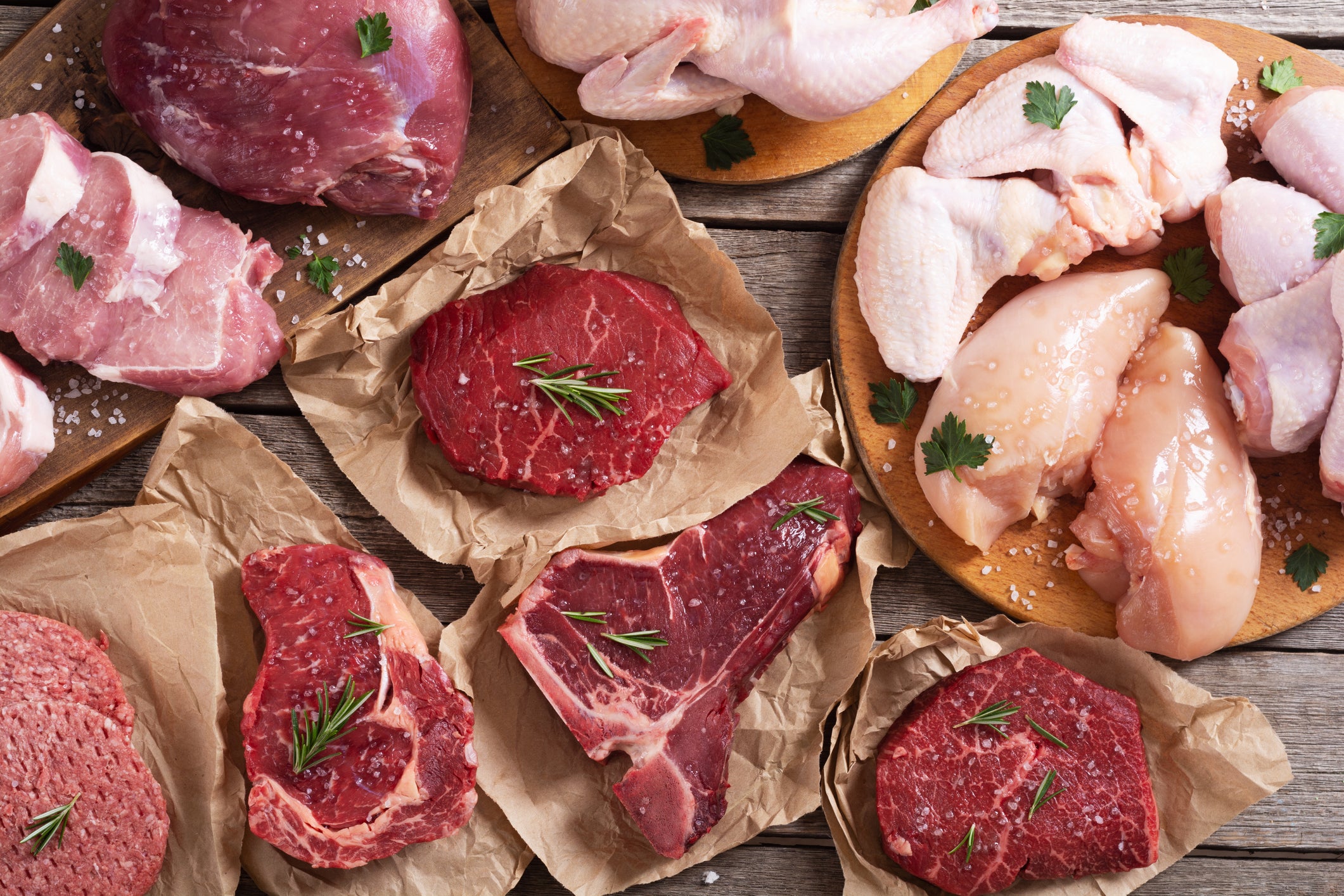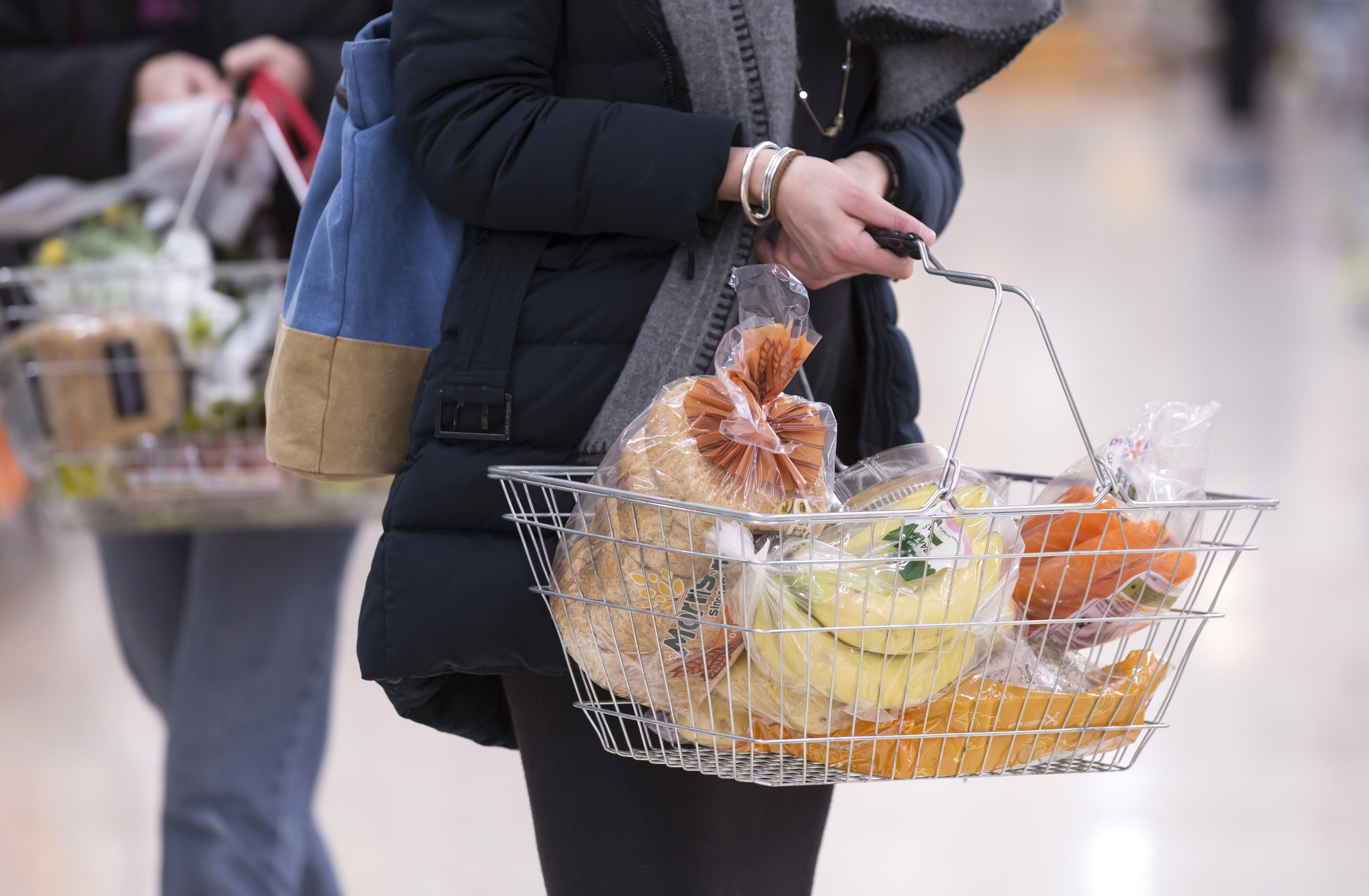One in four British adults cutting back on meat amid cost-of-living crisis
Multiple blows to people’s finances forcing most to tighten belts, poll suggests
Your support helps us to tell the story
From reproductive rights to climate change to Big Tech, The Independent is on the ground when the story is developing. Whether it's investigating the financials of Elon Musk's pro-Trump PAC or producing our latest documentary, 'The A Word', which shines a light on the American women fighting for reproductive rights, we know how important it is to parse out the facts from the messaging.
At such a critical moment in US history, we need reporters on the ground. Your donation allows us to keep sending journalists to speak to both sides of the story.
The Independent is trusted by Americans across the entire political spectrum. And unlike many other quality news outlets, we choose not to lock Americans out of our reporting and analysis with paywalls. We believe quality journalism should be available to everyone, paid for by those who can afford it.
Your support makes all the difference.More than a quarter of British adults are cutting down on buying meat as part of their budgeting efforts during the cost-of-living crisis, a new survey has found.
Out of 1,400 people surveyed, 28 per cent said they are intentionally reducing the amount of meat they buy as the cost of food, utilities and fuel skyrockets.
The lower spending on meat is most concentrated in the North East of England, where 37 per cent of those questioned by Public First said they are reducing the amount they buy, and in the South East (34 per cent).
In all parts of Britain, those most likely to reduce their meat consumption are earning up to £40,000 a year (30 per cent).
The proportion of people cutting down on meat and poultry is smaller for those earning £40,000 to £60,000 (27 per cent), and those earning £60,000 or more (23 per cent).

A significant proportion (29 per cent) of survey participants said they will be “eating less in general” to cut costs, mainly in the groups earning up to £20,000 and up to £30,000.
The highest proportions of people that said they would shorten their shopping list were in the North East (37 per cent), North West (33 per cent) and Yorkshire and the Humber (33 per cent).
The pollsters also asked survey respondents if they would opt for cheaper food brands to slim down their costs. Almost two-thirds (64 per cent) of people said they would.
In every region of Britain, more than half of people – regardless of how much they earn – said they would choose food brands cheaper than their usual choices.
But the highest numbers were found in the South East (73 per cent) and among those who earned £20,000 or less (69 per cent).

Meanwhile, 72 per cent said they are cutting back on “all non-essential purchases”, 65 per cent said they have held back on socialising at places such as restaurants and pubs, and almost half (46 per cent) said they are driving less because of the cost of fuel.
More than half (57 per cent) said that they are turning off the heating at home when it would normally be on.
But, as the survey was conducted between 1 and 3 August, this proportion is likely to balloon during the colder months when gas and electricity prices are to hit another record high.
People’s finances will suffer multiple blows, as economists fear that runaway inflation will rise to 15 per cent by the end of the year after interest rates last week had their biggest increase – 0.5 per cent – in almost three decades.
The crisis has seen Tory leadership hopefuls Liz Truss and Rishi Sunak being asked what they would do to help fix the issues when either of them succeeds Boris Johnson as PM in September.
But former Labour prime minister Gordon Brown said that the government should “act now” and warned that people on low incomes – particularly those on universal credit – “will be going hungry and cold from October”.

About 46 million adults in Britain (89 per cent of the total) are affected by the cost of living crisis, according to separate data from the Office for National Statistics (ONS).
This proportion has increased from 62 per cent – about 32m adults – when the ONS first started surveying people in November 2021 about the rising costs of running a household.
The most common reasons for higher costs were increases in the cost of groceries (94 per cent), gas or electricity bills (82 per cent), and the price of fuel for vehicles (77 per cent), according to data from the ONS Opinions and Lifestyle Survey conducted from 20 to 31 July this year.
Using a larger pool of data from March to June, the ONS listed the actions that people are taking to mitigate the damage higher prices are causing to their finances.
The ONS found that 57 per cent of people (about 26m people) are spending less on non-essentials, 51 per cent (24m people) are using less gas and electricity at home, and 42 per cent (19m people) are now mainly using their car for essential journeys only.
More than a third of those whose cost of living had gone up have cut back spending on food and essentials (35 per cent – about 16m people), according to the ONS.
But it found that disabled people (42 per cent) were more likely than non-disabled people (31 per cent) to have been forced to reduce their spending on food and essentials.



Join our commenting forum
Join thought-provoking conversations, follow other Independent readers and see their replies
Comments